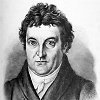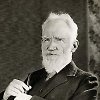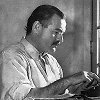Quote of the day
Natural science, does not simply describe and explain nature; it is part of the interplay between nature and ourselves
Allen W. Wood

Born: 1942 (age 84)
Bio: Allen William Wood is an American philosopher specialising in the work of Immanuel Kant and the German Idealists, with particular interests in ethics and social philosophy.
Known for:
- Kant's ethical thought (1999)
- Hegel's ethical thought (1990)
- Kant's moral religion (1968)
- Kant's rational theology (1978)
- Unsettling Obligations (2002)
Most used words:





















